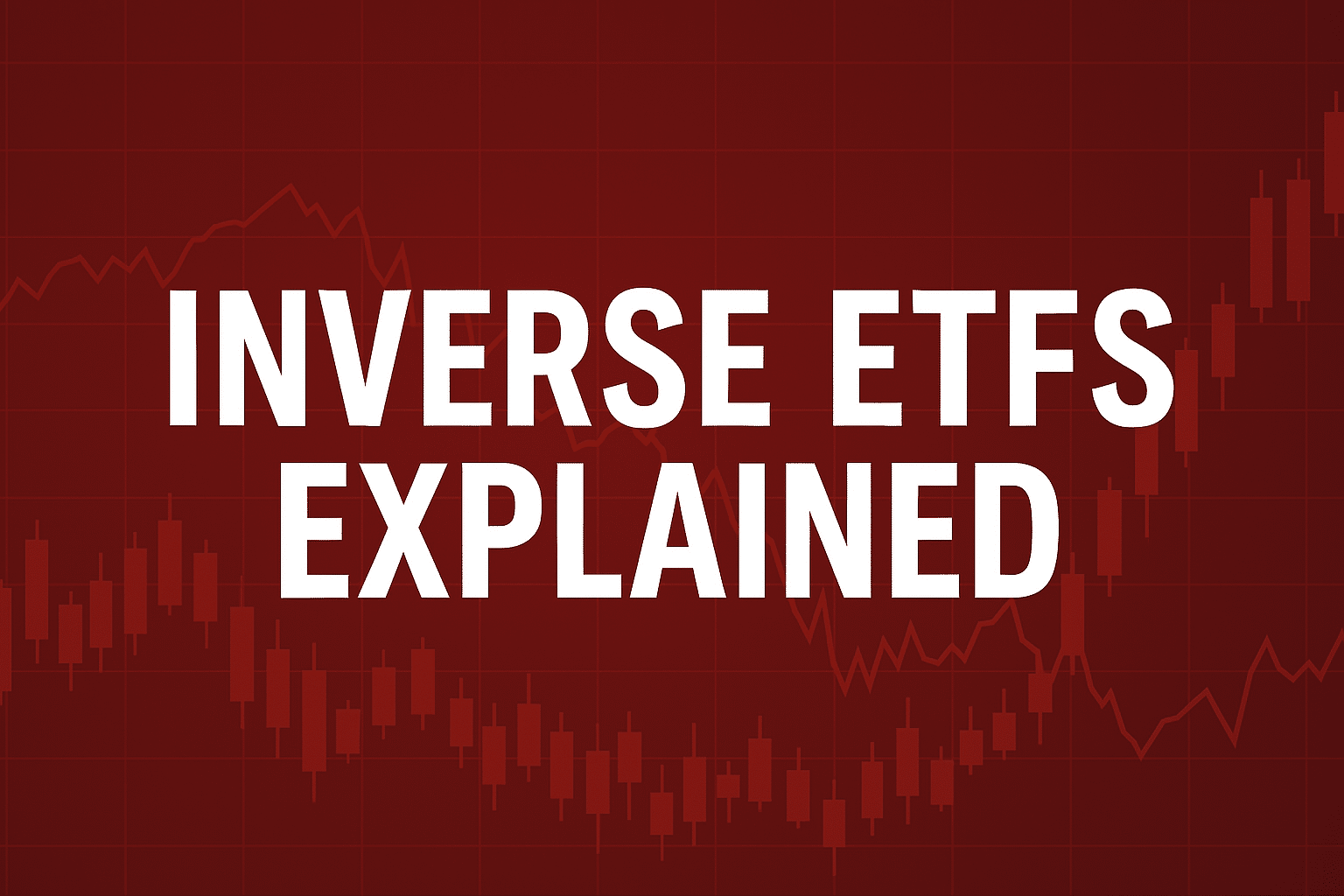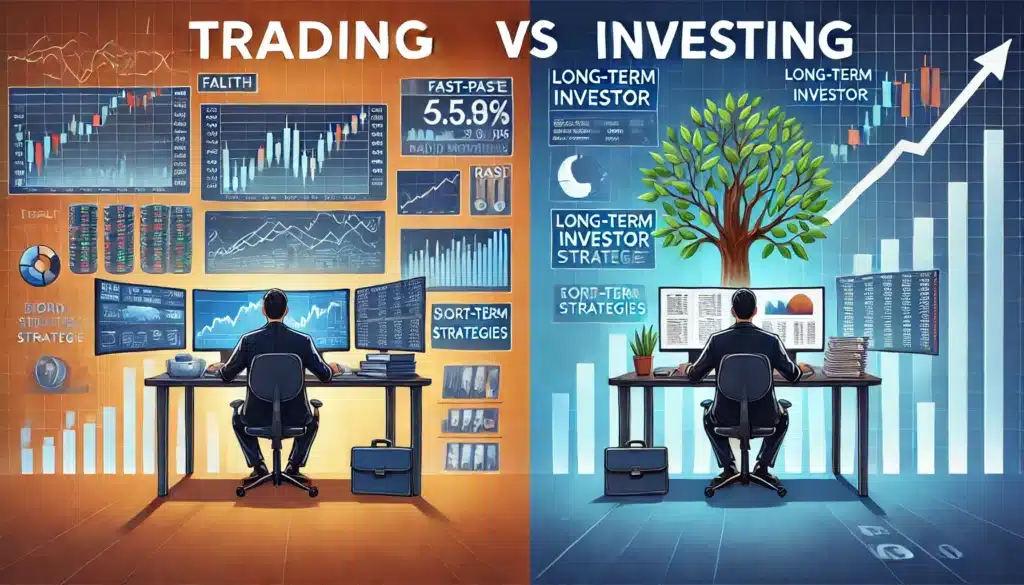Inverse ETFs
Inverse ETFs: How to Profit When Markets Go Down


By Billy Ribeiro | Globally Recognized Trader & Market Strategist
Billy Ribeiro is a globally recognized trader renowned for his mastery of price action analysis and innovative trading strategies. He was personally mentored by Mark McGoldrick, famously known as “Goldfinger,” Goldman Sachs’s most successful investor in history. McGoldrick described Billy Ribeiro as “The Future of Trading,” a testament to his extraordinary talent. Billy Ribeiro solidified his reputation by accurately calling the Covid crash bottom, the 2022 market top, and the reversal that followed, all with remarkable precision. His groundbreaking system, “The Move Prior to The Move,” enables him to anticipate market trends with unmatched accuracy, establishing him as a true pioneer in the trading world.
What Are Inverse ETFs?
Inverse ETFs are exchange-traded funds designed to deliver the opposite performance of a specific index or sector. In simple terms, they go up when the market goes down.
These ETFs are ideal for traders who want to profit from market declines without the complexities of shorting individual stocks. They are commonly used during bear markets or periods of high volatility.
For example: If the S&P 500 (tracked by SPY) falls 1% in a day, an inverse ETF like SPXS (a 3x fund) aims to rise by approximately 3%, while a 1x fund like SH would aim for a 1% gain.
How They Work: The Critical Risk of Daily Resets
Inverse ETFs use derivatives like futures contracts and swaps to achieve their goal. Crucially, they are designed to reflect the daily inverse performance of the index they track. This “daily reset” mechanism is the most important concept to understand.
Because they reset each day, holding them over multiple days in a choppy, volatile market can result in performance drift or volatility decay, where the ETF loses value even if the underlying index ends up flat.
Billy’s Take:
“I treat leveraged inverse ETFs like hand grenades, not investments. They are powerful for a specific, short-term mission—typically lasting a few hours to a few days. You get in, achieve your objective, and get out. You never hold them and hope.”
Popular Inverse ETFs by Category
| Symbol | Leverage | Index Tracked |
|---|---|---|
| SQQQ | -3x | NASDAQ-100 (QQQ) |
| SPXS | -3x | S&P 500 (SPY) |
| SDOW | -3x | Dow 30 (DIA) |
| SH | -1x | S&P 500 (SPY) |
| LABD | -3x | Biotech Sector (LABU) |
Advantages vs. Risks
Advantages:
- Accessibility: You can buy and sell them in any standard brokerage account. No margin account or special permissions are required for 1x funds.
- Simplicity: They offer a straightforward way to bet against the market without the complexities of shorting individual stocks.
- Hedging Power: A small position can effectively buffer a large portfolio against downside risk for a short period.
Risks:
- Volatility Decay: These are not long-term investments. Choppy, range-bound markets will erode their value over time due to the daily reset.
- Leverage Risk: With 2x and 3x funds, losses are magnified just as quickly as gains. A small market move against you can lead to a significant loss.
Conclusion
Inverse ETFs are valuable tools for traders who want to profit from or protect against falling markets. But they require strategy, timing, and strict risk control. If you want to explore bearish trading without the complexities of short selling, they offer a powerful alternative. Just make sure you understand how they work before putting real money on the line.
Continue Your Learning
-
What Are ETFs?
Start with the fundamentals. Learn what Exchange-Traded Funds are and how they work before diving into complex variations.
-
Leveraged ETFs Explained
Understand the mechanics, risks, and rewards of using leveraged funds before you trade their inverse counterparts.
-
The Ultimate Guide to Options Greeks
Learn how options can be used alongside ETFs for more sophisticated hedging and trading strategies.
Elevate Your Trading Skills
Ready to master these instruments? Join our community for in-depth education, live sessions, and expert analysis of how to use inverse ETFs and other advanced strategies. Sign up today to start profiting from market swings!
Frequently Asked Questions (FAQ)
Q: Are inverse ETFs better than shorting stocks?
A: They are simpler and more accessible. You avoid margin requirements (for 1x funds), hard-to-borrow fees, and the unlimited risk of a short squeeze. However, shorting a specific weak stock can be more precise than shorting a broad index.
Q: Can I hold inverse ETFs overnight or for a week?
A: You can, but it’s risky and generally not recommended beyond a few days. The daily reset mechanism means the fund’s long-term performance will not perfectly mirror the inverse of the index. They are designed for tactical, short-term use.
Q: Do I need a margin account to trade these?
A: You do not need a margin account to trade 1x inverse ETFs like SH. However, to trade leveraged funds (like 2x or 3x), most brokers will require you to have a margin account and sign additional risk disclosures.
Q: How do I know when to sell an inverse ETF?
A: You should have a pre-defined profit target or stop-loss based on the chart of the *underlying index*, not the inverse ETF itself. For example, if you buy SQQQ because you expect the QQQ to drop to its 200-day moving average, you should plan to sell SQQQ when the QQQ hits that level.
Get Actionable Insights Direct to Your Inbox
Get Your Free Trading Edge
Instant access to our weekly market insights
By subscribing, you agree to receive marketing emails from Revolution Trading Pros. Unsubscribe at any time.
- ✓ Weekly Insights
- ✓ No Spam
- ✓ Unsubscribe Anytime
CRITICAL: Trading involves substantial risk of loss and is not suitable for all investors. The content of this article is for educational purposes only and is not a recommendation to buy or sell any security. All trading strategies are used at your own risk.






